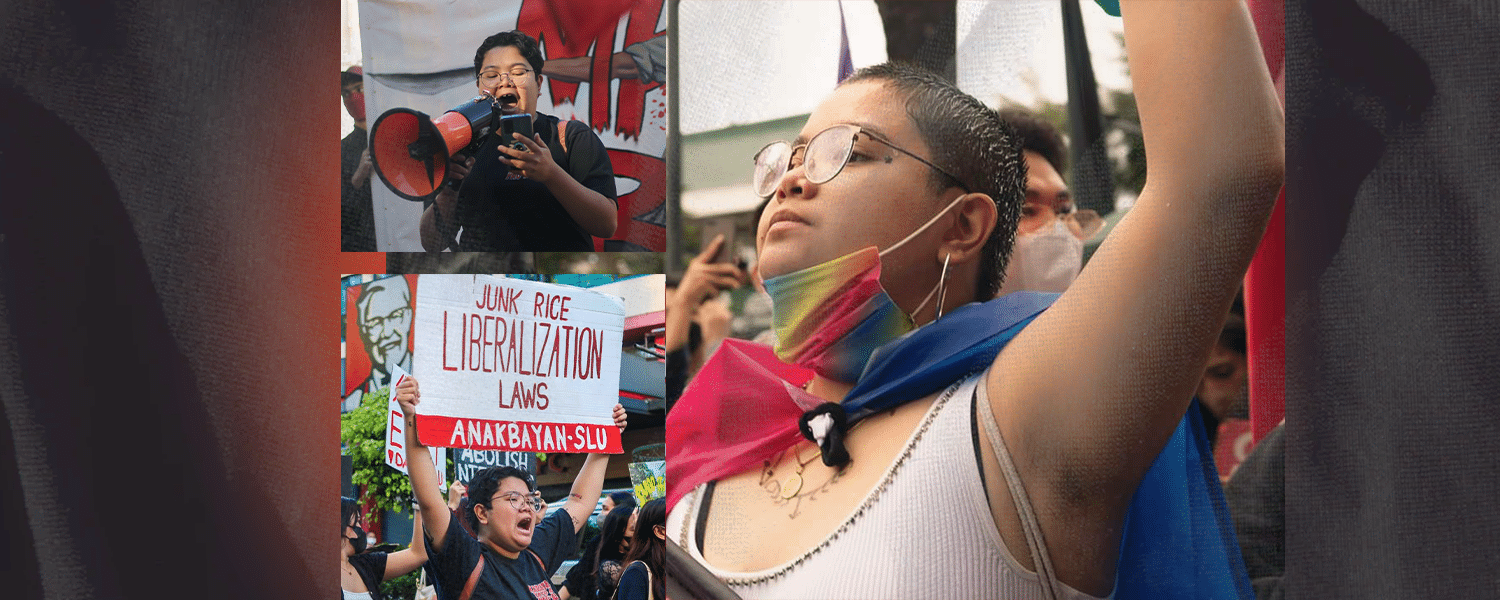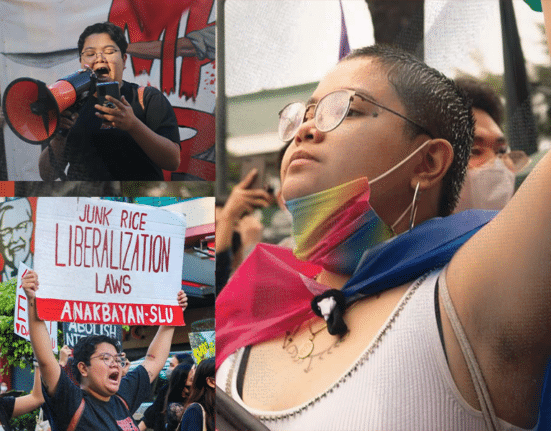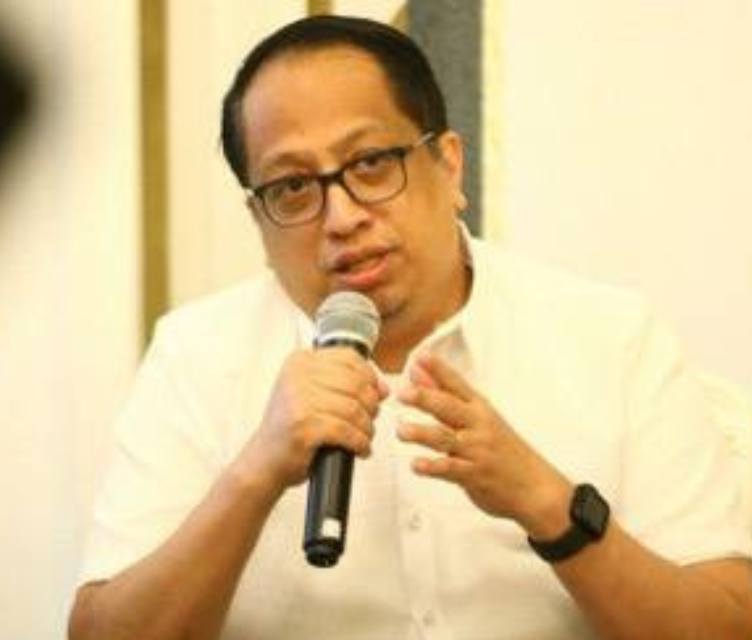THERE is no question that there is a long history of activism found within Filipino culture. From the time of Lapu-Lapu when he fought against Magellan and his troupe, defending the Philippine shores from the touch of colonizers to that of Jose Rizal, who used a pen and paper to expose the toxicity of the prayle system at the time.
Filipinos have also come together when needed to protest abuses and injustices. How could one forget the time of People Power I, when millions of people gathered together back in 1986 to topple the dictatorship? Or of the second People Power that came in 2001 to stop Filipinos from being led by a corrupt government official?
No matter who was taking over the country, Filipinos have made one thing abundantly clear: when needed, they will always find a way to fight back. Whether through hidden rebel groups or books filled with metaphors alluding to the twisted government, or even of an understanding in one’s own mind that what’s happening in the world today is wrong, there is a fire in each Filipino that will never die out.
This flame, in fact, burns so bright in others that they choose to leave everything to dedicate their lives to the cause. These people – referred to as full-time activists – leave their lives of decadence behind to help the masses, regardless if it may cost them their friends, family, or even their lives.
Why the need to drop out?
It was in 2021 that 23-year-old Ay* dropped out of Centro Escolar University Manila to pursue activism full-time. She’d been in her second year of BS Pharmacy at that time.
She joined Anakbayan Mendiola back in 2020 at the start of the pandemic, and has been a member of the organization for three years since then.
She recalled feelings of exhilaration during her first rally, and then later on had a stark realization that this is what she’d been looking for her entire life: an opportunity to scream at the top of her lungs about the problems plaguing the Philippines, walking with her fellow youth in the blistering heat to show the rest of the world their collective power.
When she decided to become an activist full-time, she packed up her bags and moved to live in Anakbayan Mendiola’s headquarters. Thankfully, her family and friends were very supportive of the change, and she was welcomed by her collective with open arms.
But this change had not been so easy for 21-year-old Darlene Nicole De Leon, a member of Anakbayan who previously studied at Saint Louis University. Like Ay, she was in her 2nd year taking up BS Medical Laboratory Science when she dropped out. She’s also been a part of Anakbayan for the past three years, having decided to go full-time and live with her collective in 2022.
In making the change to go full-time, De Leon admitted that it was hard for her to give up her so-called “bourgeoisie dreams,” even though she’s wanted to participate in rallies since she was a child. She described the decision to drop out as one that was hard and full of challenges, but worth it in the long run.
“Noong nagkasakit ako at madalas hindi makapasok sa eskuwelahan, nagkaroon ako ng maraming oras para mag-isip kung ano ba talaga ang gusto ko sa buhay… nung una, sobrang hirap talaga,” she recounted.
“Gusto ko pang mag-doctor at lawyer noon after kong makuha ang bachelor’s degree ko, pero kalaunan, natutunan kong iwan at bitawan ang burgis kong mga pangarap para sa mas malaking hamon at panawagan na magsilbi sa masa at bayan,” she added.
Her friends outside of her collective had difficulty understanding her decision; they told her she was smart, and asked why she wasn’t studying anymore. At present, her family still doesn’t know that she’s pursued activism full-time; all they know is that she’s stopped studying.
De Leon acknowledged just how hard this is on her because she knows her family wouldn’t be accepting of her calling if ever she did tell them. But she said that that’s just a part of living as an activist.
“Hindi agad mauunawaan ng lahat ang ginagawa mong pagsilbi at pagsakripisyo para sa bayan,” she said.
How life has changed
While others may think that the life of being a dropout student is filled with nothing but sleep and lazing about, the daily routine of these two activists shows that that is far from the truth.
De Leon explained that activists are human just like everyone else: they shower, eat their breakfast, and then set on to do their work.
“Hindi naman kami mga empleyado na may oras lang ang gawain; buong oras at panahaon ang inaalay namin sa pakikibaka, kaya buong oras at panahon din kaming pumapakat para mag-organisa at magsilbi sa masa,” she said.
Meanwhile, Ay’s day consists of doing political work in the morning and then getting ready for ground pakat – immersing herself and holding discussions within different communities – which she does from lunchtime until early evening. At night, she and her group do online discussions, talking about a number of different political issues present in the Philippines today.
Ay said that it’s through community organization that she truly realizes the importance of what she’s doing – speaking to street vendors or to those dwelling in urban poor communities, or conversing with workers who’ve been left with nothing but still choose to share their food with her.
De Leon could still recall her first time mass leading; she never expected she’d be able to get to that point wherein she’d be able to speak to a large group of people about the causes she and her organization are fighting for.
“Sobrang importante ng moment na yun,” she said. “Mas lalo kong minahal ang ginagawa ko at lalo na ang masang pinagsisilbihan ko.”
Often, Ay and her collective struggle with dealing with operational expenses, as well as what they refer to as the “petit bourgeois urge” to go back to school.
When asked about her heaviest moments within the organization, she named the intensified attacks of the government against the national democratic movement, the left and right militarization in the countrysides, the forced disappearances of mass leaders and organizers, and the institutionalization of unjust policies aggravating the plight of the masses as examples.
De Leon identified red tagging as another issue; people become scared for their safety as well as that of their loved ones, but they continue on in their battle.
Though there are times wherein Ay and De Leon wish to go back to their old petit bourgeois lives, they know that they will continue on down this path, no matter the risks associated with it.
“Tuloy pa rin ang laban,” De Leon said, amid her struggles. “Walang mali sa paglaban – may mali kaya lumalaban.”
Facing stereotypes
Though activism has long been a part of Philippine history, there are still others who tend to look down on those who take part in it. Most common are the beliefs that all activists are members of the New People’s Army or the Communist Party of the Philippines, or are just bored students wasting their time.
Often, others think that it’s better to just let activists be – that they’ll get bored of what they’re doing eventually, and they’ll go back to schooling when they’ve had enough of their rebellion. But being an activist is so much more than all of these stereotypes. Ay and De Leon are living proof of that.
De Leon disagrees with the idea that activists are eventually going to get tired of the work that they’re doing.
“Sa panahon na ginugol ko para mag-organisa, mas lalo akong natutuwa at ginaganahan kada-araw,” she countered. “Malinaw kasi sa akin na mahalaga ang aking ginagawa, [at] mahal ko ang masang pinagsisilbihan ko, kaya hindi ako magsasawa.”
Ay believes that some may want to return back to their petit bourgeois lives, but that’s only a part of the struggle against one’s class interests – a test, even, to see if they can fully commit themselves to the struggle and serve the people. It’s meant to be hard, but it’s an obstacle that needs to be overcome.
In defense of the negative stereotypes of communism, Ay said the ideology has been largely targeted by black propaganda over the years. But she said the core of communism is one of genuine social change.
“In the midst of intensifying struggles in cheap labor and docile working conditions, militarization in the countryside, exploitation at large even in the middle forces, no exploited would ever refuse genuine social change,” she said.
De Leon agrees with the notion that many have yet to understand what communism truly means, and argues that there is nothing wrong with what activists are fighting for. In the long run, all they want is a society wherein there is justice for everyone.
Worth fighting for
In the modern day, activists are still immensely misunderstood. Many think that they hope to bring violence and disorganization into the Philippines, but their mission is quite the opposite.
At Anakbayan Morayta, for example, Ay and the rest of her collective fight to raise awareness about their education campaign and other national issues. Most recently, they sought to bring attention to the increase in tuition and other fees in schools as well as to the Maharlika Investment Fund, deeming the latter to be the number one issue that would affect the masses.
Anakbayan and De Leon’s collective seek to make known the issue of red-tagging in the Philippines, aiming to help others understand what exactly it is and why it’s such a big deal. They also hope to show the people the state of each sector in the Philippines, and the things that need to be done to achieve a society that’s truly free.
To those itching to make a change in the world, De Leon and Ay encourage them to reach out to their local national democratic mass organization.
Ay said contradictions are a part of the collective struggle, whether you’re a full-time activist or a part-time one. And there’s no small or big contribution when it comes to serving the masses; in her words, activism is the antithesis of individualism, and you’ll always have someone to help you come hell or high water.
De Leon said that while deciding to be an activist may not be easy, it’s important to focus on why you’re doing what you’re doing, and who exactly you’re doing it for. There’s nothing wrong with feeling nervous or scared, but you need to overcome that eventually if you want to be of help to the masses, she said.
“Wag tayong matakot na subukan ang mga bagay na alam nating para sa ikabubuti ng mas nakararami. Kasama ng ating mga prinsipyo, maiigpawan natin ang lahat ng kontradiksyon,” she said.
* Ay has asked that her real name be withheld for privacy and security purposes.
How useful was this post?
Click on a star to rate it!
Average rating 0 / 5. Vote count: 0
No votes so far! Be the first to rate this post.
We are sorry that this post was not useful for you!
Let us improve this post!
Tell us how we can improve this post?






